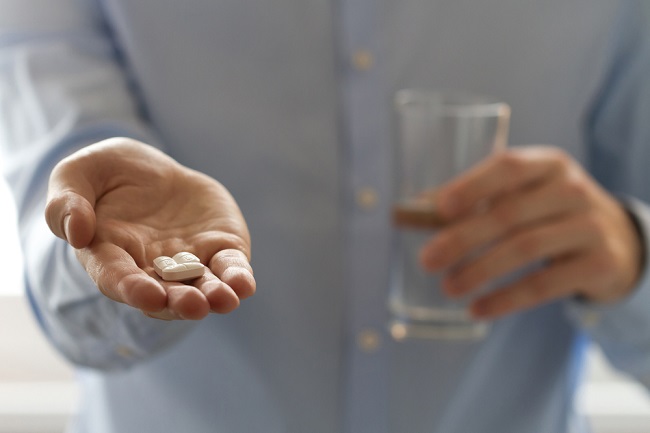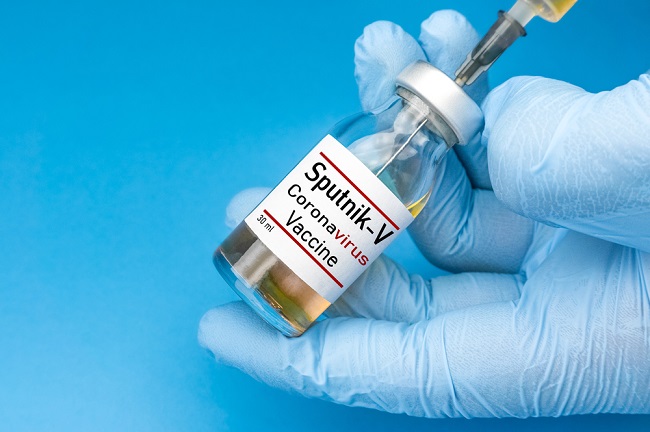Ifosfamide is a drug used in the treatment of cancer, including testicular cancer. Ifosfamide is a chemotherapy drug and should only be used as prescribed by a doctor.
Ifosfamide works by slowing and stopping the growth of cancer cells. This drug is also sometimes used to treat other cancers, such as lymphoma or sarcoma.

ifosfamide trademark: Holoxan
What is Ifosfamide
| group | Prescription drugs |
| Category | Chemotherapy |
| Benefit | Treats some types of cancer, including testicular cancer |
| Consumed by | Mature |
| Ifosfamide for pregnant and lactating women | Category D:There is positive evidence of risks to the human fetus, but the benefits may outweigh the risks, for example in dealing with life-threatening situations. Ifosfamide can be absorbed into breast milk, should not be used during breastfeeding. |
| Drug form | Injection powder |
Precautions Before Using Ifosfamide
There are several things you should pay attention to before using ifosfamide, namely:
- Tell your doctor about any allergies you have. Ifosfamide should not be given to patients who are allergic to this drug.
- Tell your doctor if you have or are currently experiencing urinary problems, including those due to an enlarged prostate. Ifosfamide should not be given to patients with these conditions.
- Tell your doctor if you have or have ever had kidney disease, liver disease, lung disease, heart disease, infectious disease, anemia, or a blood clotting disorder.
- Tell your doctor if you are having radiotherapy to the urinary tract.
- As much as possible, avoid close contact with people with infectious diseases that are easily transmitted, such as the flu, while taking ifosfamide treatment, because this drug can increase your risk of contracting it.
- Talk to your doctor if you plan to vaccinate, especially with live vaccines, such as the measles vaccine, while taking ifosfamide.
- Tell your doctor if you are pregnant, breastfeeding, or planning a pregnancy. Use effective contraception while on treatment with this medicine.
- Tell your doctor if you are taking certain medications, supplements or herbal products,
- See your doctor right away if you experience an allergic drug reaction, overdose, or serious side effect after using ifosfamide.
Dosage and Instructions for Use Ifosfamide
The ifosfamide cycle and dosage will be determined by the doctor according to the body surface area and the patient's condition. In general, the dose of ifosfamide to treat testicular cancer in adults is 1.2 grams/m2 of body surface area. This drug will be given slowly through an intravenous (IV) infusion over 30 minutes.
The drug is given for 5 consecutive days. Treatment is repeated every 3 weeks or after the body recovers from the hematological toxicity caused by chemotherapy.
How to Use Ifosfamide Correctly
Ifosfamide will be given by a doctor or medical personnel under the supervision of a doctor through an infusion into a vein (intravenous). Follow the advice and recommendations given by your doctor while using ifosfamide. Do not stop taking medication without consulting your doctor.
Treatment with ifosfamide will be given per cycle. The doctor will determine the number of cycles of treatment that need to be done. During treatment with ifosfamide, patients need to have regular blood tests, kidney function tests, and liver tests.
While using ifosfamide, patients are advised to drink plenty of water to prevent urinary disorders. Patients need to urinate frequently to prevent harmful irritation of the bladder
Ifosfamide Interactions with Other Drugs
The use of ifosfamide with other drugs can cause several interactions, including:
- Increased risk of hearing loss, such as deafness when used with cisplatin
- Increased risk of occurrence hemorrhagic cystitis, with symptoms of bloody urine, when used with busulfan
- Enhanced anticoagulant effect of warfarin
- Decreased effectiveness of live vaccines, such as BCG vaccine or measles vaccine
- Decreased blood levels of ifosfamide when used with phenobarbital, rifampin, or secobarbital
- Increased risk of developing severe and fatal infectious disease when used with siponimod, leflunomide, fingolimod, or clozapine
Side Effects and Dangers of Ifosfamide
There are several side effects that can occur after using ifosfamide, including:
- Nausea or vomiting
- Confusion, blurred vision, difficulty thinking
- Numbness, tingling, or burning sensation
- Urinary disorders
- Hair loss
Check with your doctor if these side effects don't get better or get worse. See your doctor right away if you have an allergic reaction to a drug or a more serious side effect, such as:
- Changes in behavior, confusion, hallucinations, or seizures
- Urinating infrequently or not urinating at all, difficulty or pain when urinating, or bloody urine
- Can't control the urge to urinate
- Twitching, sudden uncontrollable movements, or muscle pain
- Hearing loss or ringing in the ears
- Wounds are hard to heal
- Dark urine or jaundice
The use of ifosfamide can also increase the risk of infection. See a doctor immediately if you experience symptoms of infection, such as fever, chills, flu symptoms, mouth sores, or sore throat.









